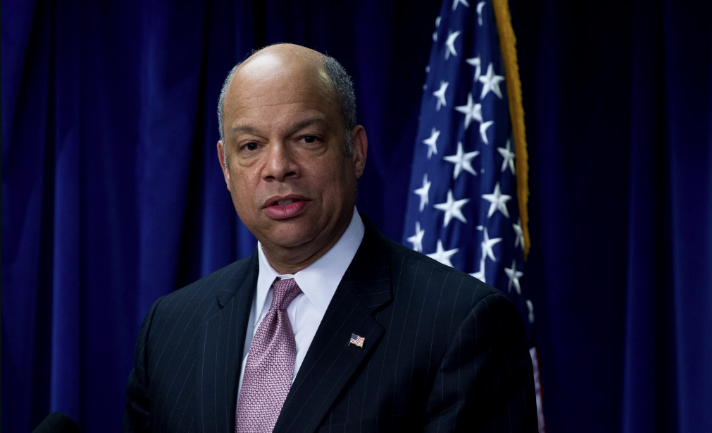What happens if DHS shuts down?
Washington (CNN)Congress has just 12 days until Department of Homeland Security funding runs out, and House Speaker John Boehner this weekend said he was “certainly” willing to let that happen.
DHS Secretary Jeh Johnson has said a shutdown would cause a “terrible disruption” for everyday Americans, and the White House is slated this week to ramp up pressure on Congress to deliver a compromise to fund the agency.
Republicans, however, say the impact of a shutdown would be minimal, because most of DHS’ operations are considered essential, and so would continue despite a funding lapse.
So what would actually happen if Congress doesn’t pass a funding bill in time?
Some DHS employees would be furloughed — but most won’t.
Two kinds of government staffers are required to work during a shutdown: Employees whose salaries are paid for by funds outside the appropriations process, and those “whose work is necessary for the preservation of the safety of human life or the protection of property,” according to the Congressional Research Service. Unsurprisingly, that latter part covers quite a lot of DHS’ workforce.
During the 2013 government shutdown, around 200,000 DHS employees were required to report to work, many of them without pay.
Those that are required to work include 50,000 TSA screeners, 40,000 active duty Coast Guard members, 13,000 immigration law enforcement officers, 40,000 border patrol and customs officers, and 4,000 Secret Service agents.
But there would be some — around 30,000 or so — furloughs, mainly hitting the department’s management and administrative functions. It’s possible, though, that staffers furloughed could be called back to work in case of an emergency — and immediately re-furloughed after they handled the issue.
That doesn’t sound like it would be pleasant for DHS emplyees.
It’s not — and the potential hit to DHS morale is a serious problem with the possible shutdown. A third-party review of federal employees found DHS ranked dead last in employee satisfaction and commitment over the past two years, and morale actually declined in 2014. It’s a challenge for the Department, which struggles to retain and recruit employees, and a shutdown wouldn’t help.
But it does sound necessary for, well, homeland security...
Exactly. Many of DHS’ most fundamental operations won’t be impacted.
A number of DHS programs are funded by fees, rather than congressional appropriations, and would continue to operate even if funding lapses.
Those include the bureau’s cybersecurity operations and the Federal Protective Service, the law enforcement agency that oversees federal buildings. Border security efforts, the TSA and intelligence gathering efforts, among others, are all key DHS activities that would remain.
FEMA’s disaster relief operations and the national flood insurance program would continue to operate.
And most U.S. Citizenship and Immigration Services operations, including the visa program, immigrant naturalization and asylum claims, would continue — except for the E-Verify system employers use to verify workers’ visas, which would pause in case of a shutdown.
Wait — so Obama’s executive action on immigration, which started this mess, would still be implemented?
Yep. It turns out defunding the agency that’s implementing Obama’s executive action delaying deportations for millions of immigrants won’t prevent the executive action from taking effect.
Republicans haven’t given up, though. They’re looking to add a policy rider to the bill extending funding for DHS that would block the executive order from taking effect — which remains a sticking point for Senate Democrats, who say they’ll only vote for a clean funding bill.
And even if House and Senate Republicans were able to pass a DHS funding bill that blocked Obama’s immigration move, he would likely veto it.
That’s caused the current showdown. And Boehner’s comments this weekendindicate there’s no clear compromise yet.
Then what DHS operations would take a hit?
State law enforcement could feel the pain of a shutdown the most.
Johnson has previously warned that, if DHS funding lapses, “we cannot engage in new starts, new spending, new initiatives, new grants to state and local law enforcement to fund homeland security missions.”
Many local law enforcement operations, including training, hiring of new staff and purchasing new equipment, are funded through DHS grants, and those would be discontinued during a shutdown.
And it could impact the nation’s ability to respond to future threats. Rep. Bennie Thompson, a Mississippi Democrat and ranking member of the Homeland Security Committee, said during a hearing this week that a DHS shutdown would halt “research and development work on countermeasures to devastating biological threats.”
Civil rights and civil liberties complaint lines and investigations would shut down as well.
http://www.cnn.com/2015/02/16/politics/dhs-shutdown-consequences/#







